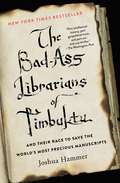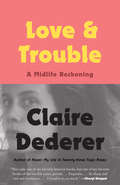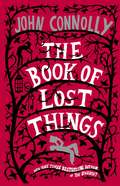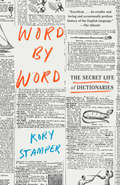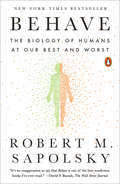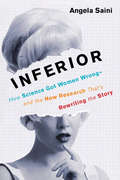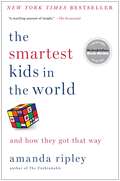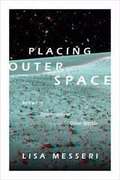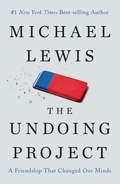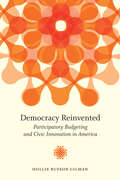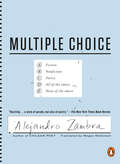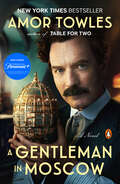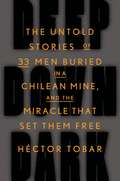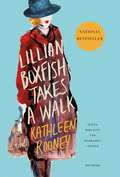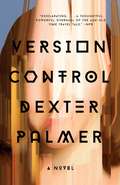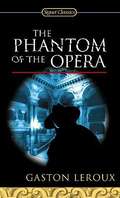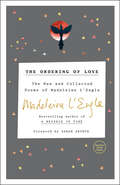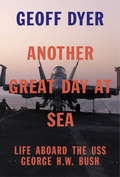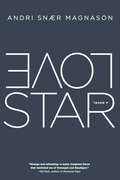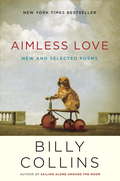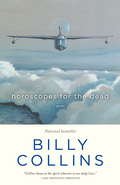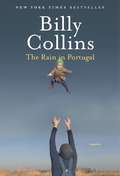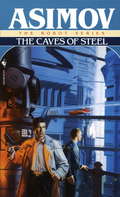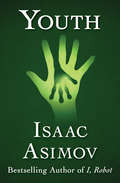Special Collections
Ted.com Recommended Reads
- Table View
- List View
The Bad-Ass Librarians of Timbuktu
by Joshua Hammer**New York Times Book Review Editors' Choice** To save ancient Arabic texts from Al Qaeda, a band of librarians pulls off a brazen heist worthy of Ocean&’s Eleven in this &“fast-paced narrative that is…part intellectual history, part geopolitical tract, and part out-and-out thriller&” (The Washington Post) from the author of The Falcon Thief.In the 1980s, a young adventurer and collector for a government library, Abdel Kader Haidara, journeyed across the Sahara Desert and along the Niger River, tracking down and salvaging tens of thousands of ancient Islamic and secular manuscripts that were crumbling in the trunks of desert shepherds. His goal: preserve this crucial part of the world&’s patrimony in a gorgeous library. But then Al Qaeda showed up at the door. &“Part history, part scholarly adventure story, and part journalist survey…Joshua Hammer writes with verve and expertise&” (The New York Times Book Review) about how Haidara, a mild-mannered archivist from the legendary city of Timbuktu, became one of the world&’s greatest smugglers by saving the texts from sure destruction. With bravery and patience, Haidara organized a dangerous operation to sneak all 350,000 volumes out of the city to the safety of southern Mali. His heroic heist &“has all the elements of a classic adventure novel&” (The Seattle Times), and is a reminder that ordinary citizens often do the most to protect the beauty of their culture. His the story is one of a man who, through extreme circumstances, discovered his higher calling and was changed forever by it.
Love and Trouble
by Claire DedererFrom the New York Times best-selling author of Poser: My Life in Twenty-Three Yoga Poses, a ferocious, sexy, hilarious memoir about going off the rails at midlife and trying to reconcile the girl she was with the woman she has become. Claire Dederer is a happily married mother of two, ages nine and twelve, when she suddenly finds herself totally despondent and, simultaneously, suffering through a kind of erotic reawakening. This exuberant memoir shifts between her present experience as a middle-aged mom in the grip of mysterious new hungers and herself as a teenager--when she last experienced life with such heightened sensitivity and longing. From her hilarious chapter titles ("How to Have Sex with Your Husband of Seventeen Years") to her subjects--from the boyfriend she dumped at fourteen the moment she learned how to give herself an orgasm, to the girls who ruled her elite private school ("when I left Oberlin I thought I had done with them forever, but it turned out ...they also edited all the newspapers and magazines, and wrote all the books"), to raising a teenage daughter herself--Dederer writes with an electrifying blend of wry wit and raw honesty. She exposes herself utterly, and in doing so captures something universal about the experience of being a woman, a daughter, a wife.From the Hardcover edition.
The Book of Lost Things
by John ConnollyNew York Times bestselling author John Connolly's unique imagination takes readers through the end of innocence into adulthood and beyond in this dark and triumphantly creative novel of grief and loss, loyalty and love, and the redemptive power of stories.High in his attic bedroom, twelve-year-old David mourns the death of his mother, with only the books on his shelf for company. But those books have begun to whisper to him in the darkness. Angry and alone, he takes refuge in his imagination and soon finds that reality and fantasy have begun to meld. While his family falls apart around him, David is violently propelled into a world that is a strange reflection of his own—populated by heroes and monsters and ruled by a faded king who keeps his secrets in a mysterious book, The Book of Lost Things. Taking readers on a vivid journey through the loss of innocence into adulthood and beyond, New York Times bestselling author John Connolly tells a dark and compelling tale that reminds us of the enduring power of stories in our lives.
Word by Word
by Kory StamperDo you have strong feelings about the word “irregardless”? Have you ever tried to define the word “is”? Brimming with intelligence and personality, this vastly entertaining account of how dictionaries are made is a must-read for word mavens. Many of us take dictionaries for granted, and few may realize that the process of writing dictionaries is, in fact, as lively and dynamic as language itself. With sharp wit and irreverence, Kory Stamper cracks open the complex, obsessive world of lexicography, from the agonizing decisions about what to define and how to do it, to the knotty questions of usage in an ever-changing language. She explains why small words are the most difficult to define, how it can take nine months to define a single word, and how our biases about language and pronunciation can have tremendous social influence. And along the way, she reveals little-known surprises—for example, the fact that “OMG” was first used in a letter to Winston Churchill in 1917. Word by Word brings to life the hallowed halls (and highly idiosyncratic cubicles) of Merriam-Webster, a startlingly rich world inhabited by quirky and erudite individuals who quietly shape the way we communicate. Certain to be a delight for all lovers of words, Stamper’s debut will make you laugh as much as it makes you appreciate the wonderful complexities and eccentricities of the English language.
Behave
by Robert M. SapolskyWhy do we do the things we do?Over a decade in the making, this game-changing book is Robert Sapolsky's genre-shattering attempt to answer that question as fully as perhaps only he could, looking at it from every angle. Sapolsky's storytelling concept is delightful but it also has a powerful intrinsic logic: he starts by looking at the factors that bear on a person's reaction in the precise moment a behavior occurs, and then hops back in time from there, in stages, ultimately ending up at the deep history of our species and its genetic inheritance.And so the first category of explanation is the neurobiological one. What goes on in a person's brain a second before the behavior happens? Then he pulls out to a slightly larger field of vision, a little earlier in time: What sight, sound, or smell triggers the nervous system to produce that behavior? And then, what hormones act hours to days earlier to change how responsive that individual is to the stimuli which trigger the nervous system? By now, he has increased our field of vision so that we are thinking about neurobiology and the sensory world of our environment and endocrinology in trying to explain what happened.Sapolsky keeps going--next to what features of the environment affected that person's brain, and then back to the childhood of the individual, and then to their genetic makeup. Finally, he expands the view to encompass factors larger than that one individual. How culture has shaped that individual's group, what ecological factors helped shape that culture, and on and on, back to evolutionary factors thousands and even millions of years old.The result is one of the most dazzling tours de horizon of the science of human behavior ever attempted, a majestic synthesis that harvests cutting-edge research across a range of disciplines to provide a subtle and nuanced perspective on why we ultimately do the things we do...for good and for ill. Sapolsky builds on this understanding to wrestle with some of our deepest and thorniest questions relating to tribalism and xenophobia, hierarchy and competition, morality and free will, and war and peace. Wise, humane, often very funny, Behave is a towering achievement, powerfully humanizing, and downright heroic in its own right.
Inferior
by Angela SainiWhat science has gotten so shamefully wrong about women, and the fight, by both female and male scientists, to rewrite what we thought we knewFor hundreds of years it was common sense: women were the inferior sex. Their bodies were weaker, their minds feebler, their role subservient. No less a scientist than Charles Darwin asserted that women were at a lower stage of evolution, and for decades, scientists—most of them male, of course—claimed to find evidence to support this.Whether looking at intelligence or emotion, cognition or behavior, science has continued to tell us that men and women are fundamentally different. Biologists claim that women are better suited to raising families or are, more gently, uniquely empathetic. Men, on the other hand, continue to be described as excelling at tasks that require logic, spatial reasoning, and motor skills. But a huge wave of research is now revealing an alternative version of what we thought we knew. The new woman revealed by this scientific data is as strong, strategic, and smart as anyone else.In Inferior, acclaimed science writer Angela Saini weaves together a fascinating—and sorely necessary—new science of women. As Saini takes readers on a journey to uncover science’s failure to understand women, she finds that we’re still living with the legacy of an establishment that’s just beginning to recover from centuries of entrenched exclusion and prejudice. Sexist assumptions are stubbornly persistent: even in recent years, researchers have insisted that women are choosy and monogamous while men are naturally promiscuous, or that the way men’s and women’s brains are wired confirms long-discredited gender stereotypes.As Saini reveals, however, groundbreaking research is finally rediscovering women’s bodies and minds. Inferior investigates the gender wars in biology, psychology, and anthropology, and delves into cutting-edge scientific studies to uncover a fascinating new portrait of women’s brains, bodies, and role in human evolution.
The Smartest Kids in the World
by Amanda RipleyHow do other countries create &“smarter&” kids? What is it like to be a child in the world&’s new education superpowers? The Smartest Kids in the World &“gets well beneath the glossy surfaces of these foreign cultures and manages to make our own culture look newly strange....The question is whether the startling perspective provided by this masterly book can also generate the will to make changes&” (The New York Times Book Review).In a handful of nations, virtually all children are learning to make complex arguments and solve problems they’ve never seen before. They are learning to think, in other words, and to thrive in the modern economy. Inspired to find answers for our own children, author and Time magazine journalist Amanda Ripley follows three Americans embedded in these countries for one year. Kim, fifteen, raises $10,000 so she can move from Oklahoma to Finland; Eric, eighteen, trades his high-achieving Minnesota suburb for a booming city in South Korea; and Tom, seventeen, leaves a historic Pennsylvania village for Poland. Through these young informants, Ripley meets battle-scarred reformers, sleep-deprived zombie students, and a teacher who earns $4 million a year. Their stories, along with groundbreaking research into learning in other cultures, reveal a pattern of startling transformation: none of these countries had many “smart” kids a few decades ago. Things had changed. Teaching had become more rigorous; parents had focused on things that mattered; and children had bought into the promise of education.
Placing Outer Space
by Lisa MesseriIn Placing Outer Space Lisa Messeri traces how the place-making practices of planetary scientists transform the void of space into a cosmos filled with worlds that can be known and explored. Making planets into places is central to the daily practices and professional identities of the astronomers, geologists, and computer scientists Messeri studies. She takes readers to the Mars Desert Research Station and a NASA research center to discuss ways scientists experience and map Mars. At a Chilean observatory and in MIT's labs she describes how they discover exoplanets and envision what it would be like to inhabit them. Today's planetary science reveals the universe as densely inhabited by evocative worlds, which in turn tells us more about Earth, ourselves, and our place in the universe.
The Undoing Project
by Michael LewisHow a Nobel Prize-winning theory of the mind altered our perception of reality.
Forty years ago, Israeli psychologists Daniel Kahneman and Amos Tversky wrote a series of breathtakingly original studies undoing our assumptions about the decision-making process. Their papers showed the ways in which the human mind erred, systematically, when forced to make judgments in uncertain situations. Their work created the field of behavioral economics, revolutionized Big Data studies, advanced evidence-based medicine, led to a new approach to government regulation, and made much of Michael Lewis's own work possible. Kahneman and Tversky are more responsible than anybody for the powerful trend to mistrust human intuition and defer to algorithms.
The Undoing Project is about a compelling collaboration between two men who have the dimensions of great literary figures. They became heroes in the university and on the battlefield--both had important careers in the Israeli military--and their research was deeply linked to their extraordinary life experiences. Amos Tversky was a brilliant, self-confident warrior and extrovert, the center of rapt attention in any room; Kahneman, a fugitive from the Nazis in his childhood, was an introvert whose questing self-doubt was the seedbed of his ideas. They became one of the greatest partnerships in the history of science, working together so closely that they couldn't remember whose brain originated which ideas, or who should claim credit. They flipped a coin to decide the lead authorship on the first paper they wrote, and simply alternated thereafter.
This story about the workings of the human mind is explored through the personalities of two fascinating individuals so fundamentally different from each other that they seem unlikely friends or colleagues. In the process they may well have changed, for good, mankind's view of its own mind.
A New York Times Bestseller
Democracy Reinvented
by Hollie Russon GilmanParticipatory Budgeting—the experiment in democracy that could redefine how public budgets are decided in the United States. Democracy Reinvented is the first comprehensive academic treatment of participatory budgeting in the United States, situating it within a broader trend of civic technology and innovation. This global phenomenon, which has been called "revolutionary civics in action" by the New York Times, started in Brazil in 1989 but came to America only in 2009. Participatory budgeting empowers citizens to identify community needs, work withelected officials to craft budget proposals, and vote on how to spend public funds. Democracy Reinvented places participatory budgeting within the larger discussion of the health of U. S. democracy and focuses on the enabling political and institutional conditions. Author and former White House policy adviser Hollie Russon Gilman presents theoretical insights, indepth case studies, and interviews to offer a compelling alternative to the current citizen disaffection and mistrust of government. She offers policyrecommendations on how to tap online tools and other technological and civic innovations to promote more inclusive governance. While most literature tends to focus on institutional changes without solutions, this book suggests practical ways to empower citizens to become change agents. Reinvesting in Democracy also includes a discussion on the challenges and opportunities that come with using digital tools to re-engage citizens in governance.
Multiple Choice
by Alejandro Zambra and Megan McdowellNAMED ONE OF THE BEST BOOKS OF THE SUMMER BY THE WALL STREET JOURNAL, ELLE, THE HUFFINGTON POST, THE MILLIONS, VOX, BBC, AND PUREWOW"Latin America's new literary star." --The New Yorker"Brilliant . . . Like a literary exercise for the mind, but strangely fun to decode." --Elle"The most talked-about writer to come out of Chile since Bolaño," (The New York Times Book Review), Alejandro Zambra is celebrated around the world for his strikingly original, slyly funny, daringly unconventional fiction. Now, at the height of his powers, Zambra returns with his most audaciously brilliant book yet.Written in the form of a standardized test, Multiple Choice invites the reader to respond to virtuoso language exercises and short narrative passages through multiple-choice questions that are thought-provoking, usually unanswerable, and often absurd. It offers a new kind of reading experience, one in which the reader participates directly in the creation of meaning, and the nature of storytelling itself is called into question. At once funny, poignant, and political, Multiple Choice is about love and family, authoritarianism and its legacies, and the conviction that, rather than learning to think for ourselves, we are trained to obey and repeat. Serious in its literary ambition and playful in its execution, it confirms Alejandro Zambra as one of the most important writers working in any language.From the Trade Paperback edition.
A Gentleman in Moscow
by Amor TowlesHe can't leave his hotel. You won't want to. From the New York Times bestselling author of Rules of Civility--a transporting novel about a man who is ordered to spend the rest of his life inside a luxury hotel.
In 1922, Count Alexander Rostov is deemed an unrepentant aristocrat by a Bolshevik tribunal, and is sentenced to house arrest in the Metropol, a grand hotel across the street from the Kremlin.
Rostov, an indomitable man of erudition and wit, has never worked a day in his life, and must now live in an attic room while some of the most tumultuous decades in Russian history are unfolding outside the hotel's doors.
Unexpectedly, his reduced circumstances provide him entry into a much larger world of emotional discovery. Brimming with humor, a glittering cast of characters, and one beautifully rendered scene after another, this singular novel casts a spell as it relates the count's endeavor to gain a deeper understanding of what it means to be a man of purpose.
A New York Times Bestseller
Deep Down Dark
by Héctor TobarWhen the San José mine collapsed outside of Copiapó, Chile, in August 2010, it trapped thirty-three miners beneath thousands of feet of rock for a record-breaking sixty-nine days. The entire world watched what transpired above-ground during the grueling and protracted rescue, but the saga of the miners' experiences below the Earth's surface--and the lives that led them there--has never been heard until now. For Deep Down Dark, the Pulitzer Prize-winning journalist Héctor Tobar received exclusive access to the miners and their tales. These thirty-three men came to think of the mine, a cavern inflicting constant and thundering aural torment, as a kind of coffin, and as a church where they sought redemption through prayer. Even while still buried, they all agreed that if by some miracle any of them escaped alive, they would share their story only collectively. Héctor Tobar was the person they chose to hear, and now to tell, that story. The result is a masterwork of narrative journalism--a riveting, at times shocking, emotionally textured account of a singular human event. Deep Down Dark brings to haunting, tactile life the experience of being imprisoned inside a mountain of stone, the horror of being slowly consumed by hunger, and the spiritual and mystical elements that surrounded working in such a dangerous place. In its stirring final chapters, it captures the profound way in which the lives of everyone involved in the disaster were forever changed.
Lillian Boxfish Takes a Walk
by Kathleen RooneyNOW A NATIONAL INDIE BESTSELLER“Transporting…witty, poignant and sparkling.”—People (People Picks Book of the Week)“Prescient and quick....A perfect fusing of subject and writer, idea and ideal.”—Chicago Tribune“Extraordinary…hilarious…Elegantly written, Rooney creates a glorious paean to a distant literary life and time—and an unabashed celebration of human connections that bridge past and future.—Publishers Weekly (starred and boxed)"Rooney's delectably theatrical fictionalization is laced with strands of tart poetry and emulates the dark sparkle of Dorothy Parker, Edna St. Vincent Millay, and Truman Capote. Effervescent with verve, wit, and heart, Rooney’s nimble novel celebrates insouciance, creativity, chance, and valor."—Booklist (starred review)“In my reckless and undiscouraged youth,” Lillian Boxfish writes, “I worked in a walnut-paneled office thirteen floors above West Thirty-Fifth Street…” She took 1930s New York by storm, working her way up writing copy for R.H. Macy’s to become the highest paid advertising woman in the country. It was a job that, she says, “in some ways saved my life, and in other ways ruined it.”Now it’s the last night of 1984 and Lillian, 85 years old but just as sharp and savvy as ever, is on her way to a party. It’s chilly enough out for her mink coat and Manhattan is grittier now—her son keeps warning her about a subway vigilante on the prowl—but the quick-tongued poetess has never been one to scare easily. On a walk that takes her over 10 miles around the city, she meets bartenders, bodega clerks, security guards, criminals, children, parents, and parents-to-be, while reviewing a life of excitement and adversity, passion and heartbreak, illuminating all the ways New York has changed—and has not. A love letter to city life in all its guts and grandeur, Lillian Boxfish Takes a Walk by Kathleen Rooney paints a portrait of a remarkable woman across the canvas of a changing America: from the Jazz Age to the onset of the AIDS epidemic; the Great Depression to the birth of hip-hop.Lillian figures she might as well take her time. For now, after all, the night is still young.
Version Control
by Dexter PalmerThe acclaimed author of The Dream of Perpetual Motion returns with a compelling novel about the effects of science and technology on our friendships, our love lives, and our sense of self. Rebecca Wright has reclaimed her life, finding her way out of her grief and depression following a personal tragedy years ago. She spends her days working in customer support for the internet dating site where she first met her husband. But she has a strange, persistent sense that everything around her is somewhat off-kilter: she constantly feels as if she has walked into a room and forgotten what she intended to do there; on TV, the President seems to be the wrong person in the wrong place; her dreams are full of disquiet. Meanwhile, her husband's decade-long dedication to his invention, the causality violation device (which he would greatly prefer you not call a "time machine") has effectively stalled his career and made him a laughingstock in the physics community. But he may be closer to success than either of them knows or can possibly imagine. Version Control is about a possible near future, but it's also about the way we live now. It's about smart phones and self-driving cars and what we believe about the people we meet on the Internet. It's about a couple, Rebecca and Philip, who have experienced a tragedy, and about how they help--and fail to help--each other through it. Emotionally powerful and stunningly visionary, Version Control will alter the way you see your future and your present.From the Hardcover edition.
The Phantom of the Opera
by Gaston Leroux and Dr John L. FlynnWhether you've read The Phantom of the Opera once or a hundred times or are encountering him for the first time, prepare to be seduced by the darkly romantic tale of a disfigured musical genius and his unrequited love for a beautiful young singer. Those richly textured scenes that portray Erik's secret lair, Christine's unmasking of the Phantom, the luscious music of the night, the masked ball, and the crashing chandelier are all here within these pages, and so much more. Just turn the page, and get ready to fall in love with Erik and Christine, Raoul, the Persian, and all of the other characters who inhabit Gaston Leroux's classic story. (From the introduction)
The Ordering of Love
by Madeleine L'EnglePraise for The Ordering of LoveBy Madeleine L'Engle"In a brilliant marriage of myth and manner, histories sacred and profane, prayers of petition and of praise, these poems both articulate and illumine the trouble in the gap in which we live-the gap between human affections and Divine Love. L'Engle is unfailing in her willingness to see through-not around-human suffering, and in so doing announces no final severing of spirit and flesh but an enduring vision of resurrection in that crux, in the cross, in the One in Whom all things meet, continuing." -Scott Cairns, author of Slow Pilgrim and Philokalia: New and Selected Poems"I love L'Engle's poetry for the way it incarnates not only the great Truths of the faith, but all the little truths of our ordinary existence-our working and playing and loving and fighting and dreaming and idling and all the rest of it-and for the way it shows us that those big and little truths should not, cannot, be separated."-Carolyn Arends, recording artist and author"Why is L'Engle one of the defining poets of our time? Because when life hurts, she does not shrink from the wounds. She clarifies the murk with hope as we feel the lift of grace."-Calvin Miller, Beeson Divinity SchoolBirmingham, Alabama"We are, all of us, the richer for this carefully crafted and prayerfully rendered collection."-Phyllis Tickle, Author, The Divine Hours"Poetry, at least the kind I write, is written out of immediate need; it is written out of pain, joy, and experience too great to be borne until it is ordered into words. And then it is written to be shared."-Madeleine L'EngleMadeleine L'Engle's writing has always translated the invisible and intricate qualities of love into the patterns and rhythms of visible life. Now, with compelling language and open-hearted vulnerability, The Ordering of Love brings together the exhaustive collection of L'Engle's poetry for the first time. This volume collects nearly 200 of L'Engle's original poems, including eighteen that have never before been published. Reflecting on themes of love, loss, faith, and beauty, The Ordering of Love gives vivid and compelling insight into the language of the heart.From the Hardcover edition.
Another Great Day at Sea
by Geoff DyerFrom a writer "whose genre-jumping refusal to be pinned down [makes him] an exemplar of our era" (NPR), a new book that confirms his power to astound readers. As a child Geoff Dyer spent long hours making and blotchily painting model fighter planes. So the adult Dyer jumped at the chance of a residency aboard an aircraft carrier. Another Great Day at Sea chronicles Dyer's experiences on the USS George H.W. Bush as he navigates the routines and protocols of "carrier-world," from the elaborate choreography of the flight deck through miles of walkways and hatches to kitchens serving meals for a crew of five thousand to the deafening complexity of catapult and arresting gear. Meeting the Captain, the F-18 pilots and the dentists, experiencing everything from a man-overboard alert to the Steel Beach Party, Dyer guides us through the most AIE (acronym intensive environment) imaginable. A lanky Englishman (could he really be both the tallest and the oldest person on the ship?) in a deeply American world, with its constant exhortations to improve, to do better, Dyer brilliantly records the daily life on board the ship, revealing it to be a prism for understanding a society where discipline and conformity, dedication and optimism, become forms of self-expression. In the process it becomes clear why Geoff Dyer has been widely praised as one of the most original--and funniest--voices in literature. Another Great Day at Sea is the definitive work of an author whose books defy definition.From the Hardcover edition.
LoveStar
by Andri Snaer Magnason and Victoria CribbLoveStar, the enigmatic and obsessively driven founder of the LoveStar corporation, has unlocked the key to transmitting data via birdwaves, thus freeing mankind from wires and devices, and allowing consumerism, technology, and science to run rampant over all aspects of daily life. Cordless modern men and women are paid to howl advertisements at unsuspecting passers-by, REGRET machines eliminate doubt over roads not taken, soul mates are identified and brought together (while existing, unscientifically validated relationships are driven remorselessly asunder), and rocketing the dead into the sky becomes both a status symbol and a beautiful, cathartic show for those left behind. Indridi and Sigrid, two blissfully happy young lovers, have their perfect worlds threatened (along with Indridi's sanity) when they are "calculated apart" and are forced to go to extreme lengths to prove their love. Their journey ultimately puts them on a collision course with LoveStar, who is on his own mission to find what might become the last idea in the world. Steeped in influences ranging from Italo Calvino, Jorge Luis Borges, and Kurt Vonnegut to George Orwell, Douglas Adams, and Monty Python, Andri Snær Magnason has created a surreal yet uncomfortably familiar world, where the honey embrace of love does its utmost to survive amid relentless and overpowering controls.
Aimless Love
by Billy Collins"Billy Collins puts the 'fun' back in 'profundity.' "--Alice FultonFrom the two-term Poet Laureate of the United States Billy Collins comes his first compilation of new and selected poems in twelve years. Aimless Love combines more than fifty new poems with selections from four previous books--Nine Horses, The Trouble with Poetry, Ballistics, and Horoscopes for the Dead. Collins's unmistakable voice, which brings together plain speech with imaginative surprise, is clearly heard on every page, reminding us how he has managed to enrich the tapestry of contemporary poetry and greatly expand its audience. His work is featured in top literary magazines such as The New Yorker, Poetry, and The Atlantic, and he sells out reading venues all across the country. Appearing regularly in The Best American Poetry series, his poems appeal to readers and live audiences far and wide and have been translated into more than a dozen languages. By turns playful, ironic, and serious, Collins's poetry captures the nuances of everyday life while leading the reader into zones of inspired wonder. In the poet's own words, he hopes that his poems "begin in Kansas and end in Oz." Touching on the themes of love, loss, joy, and poetry itself, these poems showcase the best work of this "poet of plenitude, irony, and Augustan grace" (The New Yorker).Envoy Go, little book, out of this house and into the world, carriage made of paper rolling toward town bearing a single passenger beyond the reach of this jittery pen and far from the desk and the nosy gooseneck lamp. It is time to decamp, put on a jacket and venture outside, time to be regarded by other eyes, bound to be held in foreign hands. So off you go, infants of the brain, with a wave and some bits of fatherly advice: stay out as late as you like, don't bother to call or write, and talk to as many strangers as you can.Praise for Aimless Love"America's favorite poet."--The Wall Street Journal "[Billy Collins's] poetry presents simple observations, which create a shared experience between [him] and his readers, while further revealing how he takes life's everyday humdrum experiences and makes them vibrant. While Collins's previous collections have already validated his brilliance and staying power as a poet, he continues to reveal an ever-growing maturity."--The Times Leader"In selections from his four most recent collections . . . and fifty-one glimmering new poems, former poet laureate and reader favorite Collins, the maestro of the running-brook line and the clever pivot, celebrates the resonance and absurdity of what might be called the poet's attention-surfeit disorder. . . . But Collins' droll wit is often a diversionary tactic, so that when he strikes you with the hard edge of his darker visions, you reel."--BooklistFrom the Hardcover edition.
Horoscopes for the Dead
by Billy CollinsBilly Collins is widely acknowledged as a prominent player at the table of modern American poetry. And in this new collection, Horoscopes for the Dead, the verbal gifts that earned him the title "America's most popular poet" are on full display. The poems here cover the usual but everlasting themes of love and loss, life and death, youth and aging, solitude and union. With simple diction and effortless turns of phrase, Collins is at once ironic and elegiac, as in the opening lines of the title poem: Every morning since you disappeared for good, I read about you in the newspaper along with the box scores, the weather, and all the bad news. Some days I am reminded that today will not be a wildly romantic time for you . . . And in this reflection on his own transience: It doesn't take much to remind me what a mayfly I am, what a soap bubble floating over the children's party. Standing under the bones of a dinosaur in a museum does the trick every time or confronting in a vitrine a rock from the moon. Smart, lyrical, and not afraid to be funny, these new poems extend Collins's reputation as a poet who occupies a special place in the consciousness of readers of poetry, including the many he has converted to the genre.Note to Readers: adjusting the size of the type on your e-reading device may affect the line formatting of this eBook. We have formatted the eBook so that any words that get bumped to a new line in a poem will be noticeably indented.
The Rain in Portugal
by Billy CollinsFrom former U.S. Poet Laureate Billy Collins comes a twelfth collection of poetry offering nearly fifty new poems that showcase the generosity, wit, and imaginative play that prompted The Wall Street Journal to call him "America's favorite poet." The Rain in Portugal--a title that admits he's not much of a rhymer--sheds Collins's ironic light on such subjects as travel and art, cats and dogs, loneliness and love, beauty and death. His tones range from the whimsical--"the dogs of Minneapolis . . . / have no idea they're in Minneapolis"--to the elegiac in a reaction to the death of Seamus Heaney. A student of the everyday, here Collins contemplates a weather vane, a still life painting, the calendar, and a child lost at a beach. His imaginative fabrications have Shakespeare flying comfortably in first class and Keith Richards supporting the globe on his head. By turns entertaining, engaging, and enlightening, The Rain in Portugal amounts to another chorus of poems from one of the most respected and familiar voices in the world of American poetry. On Rhyme It's possible that a stitch in time might save as many as twelve or as few as three, and I have no trouble remembering that September has thirty days. So do June, November, and April. I like a cat wearing a chapeau or a trilby, Little Jack Horner sitting on a sofa, old men who are not from Nantucket, and how life can seem almost unreal when you are gently rowing a boat down a stream. That's why instead of recalling today that it mostly pours in Spain, I am going to picture the rain in Portugal, how it falls on the hillside vineyards, on the surface of the deep harbors where fishing boats are swaying, and in the narrow alleys of the cities where three boys in tee shirts are kicking a soccer ball in the rain, ignoring the window-cries of their mothers.
Caves of Steel
by Isaac AsimovA millennium into the future two advancements have altered the course of human history: the colonization of the galaxy and the creation of the positronic brain. Isaac Asimov's Robot novels chronicle the unlikely partnership between a New York City detective and a humanoid robot who must learn to work together. Like most people left behind on an over-populated Earth, New York City police detective Elijah Baley had little love for either the arrogant Spacers or their robotic companions. But when a prominent Spacer is murdered under mysterious circumstances, Baley is ordered to the Outer Worlds to help track down the killer. The relationship between Life and his Spacer superiors, who distrusted all Earthmen, was strained from the start. Then he learned that they had assigned him a partner: R. Daneel Olivaw. Worst of all was that the "R" stood for robot--and his positronic partner was made in the image and likeness of the murder victim!
Youth
by Isaac AsimovTwo young boys find some very unusual new pets in this short story from a Grand Master of Science Fiction. Tagging along while his astronomer father visits an industrialist at his vast estate, young Slim is lucky enough to make fast friends with the industrialist&’s son, Red, who has recently caught some very strange animals on the property. The animals seem intelligent enough, and Red recruits Slim to help him train the odd creatures to do circus tricks. But the boys are about to discover their playthings aren&’t exactly animals—and they&’ve allowed themselves to be caught for a reason . . . Youth is a riveting tale from the author of countless classics, including I, Robot and the Foundation Trilogy, which won the Hugo Award for Best All-Time Series. This ebook has been professionally proofread to ensure accuracy and readability on all devices.
Only A Trillion
by Isaac AsimovA trillion seconds is equal to 31,700 years.A trillion inches is equal to 15,800,000 miles.In other words, a trillion seconds ago, Stone Age man lived in caves, and mastodons roamed Europe and North America.Or, a trillion-inch journey will carry you 600 times around the Earth, and leave more than enough distance to carry you to the moon and back.And yet a good part of the chapters that follow ought to show you quite plainly that even a trillion can become a laughably small figure in the proper circumstances.Isaac Asimov is curious about nearly everything, and he has made it his business to share whatever he learns with us--there are few people as good at it as he is.ONLY A TRILLION is only one example of the range of his talents and the depth of his knowledge. These twelve essays are on such diverse subjects as life on other planets, the famous Thiotimoline--and The Goose That Laid The Golden Eggs...but you're just going to have to buy this book to find out what he knows about that.
